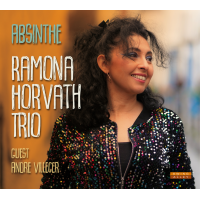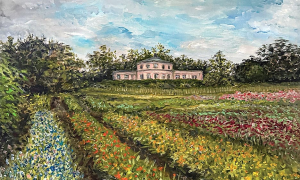
Like many Americans and citizens of the world, on the morning of Nov. 5 I awoke with a renewed sense of purpose. Having witnessed the night before an event that I never ever imagined contemplating -- the election of an African American to the office of president of the United States of America -- I felt truly vindicated in the belief that if you live long enough, anything is possible.
The night before, as I sat with family and friends watching the election results come in, I resigned myself to tempering my emotions. Like all of Barack Obama's supporters, I was encouraged by the strength, poise and deftness with which he ran his campaign. I knew that he was the best person for the job. But as a black man in America, I knew from experience not to let what I wanted to happen stray too far from the reality of what I knew could happen.
Like many African Americans of my generation, my American experience was one that was steeped in the ideology that we were, at best, second-class citizens. Born in Chicago during the Depression, my future seemed destined to be an anonymous existence doing whatever was necessary to survive. But luckily, through a series of events, my beloved father would move my brother Lloyd and me to Seattle, where -- and I can only credit divine intervention for this -- I would find music and the path to what would eventually lead to a very different and equally unimaginable future for me.
As a teen in Seattle during the 1940s, we didn't have Will Smiths or Michael Jordans or Oprah Winfreys to look to as role models. The people I looked to for inspiration were the musicians who lived in and came through town on tour. Men such as Clark Terry, Lionel Hampton, Count Basie, Bobby Tucker, Bumps Blackwell and Ray Charles, among many others. Men who took me under their wings and not only encouraged me where music was concerned but also told me about the great wide world that existed out there for me if I wanted it.
Coupled with my experience at Garfield High School -- at the time and today one of the most progressive high schools in America, where multiculturalism was not only encouraged but celebrated -- I had a deep sense early on that there was more to mankind's coexistence on this planet than “us and them." But I was not naive and I did not live life through rose-colored glasses. I was more than aware of the prevalent racial attitudes of my country, and if any validation was needed it was easily found when I was a young musician with Lionel Hampton.
Traveling across the segregated South on a bus full of musicians -- the sole white person being the bus driver, because we would need him to go into restaurants to get us food -- I saw the requisite white and colored water fountains and restrooms, the dance halls where the audience seating was separate with the whites sitting in the balcony. Driving through five towns in Texas because stopping wasn't remotely an option, only to finally arrive in Dallas to an effigy of a black man with a noose around its neck hanging from the highest church steeple in town . . . the message was loud and clear.
Changes
But I knew that the gift of music that I was provided with could overcome cultural boundaries and bring people of different opinions together. And on my first trips to Europe, where audiences and fellow musicians of all hues engaged us as men of equal stature, and again as the musical director for Dizzy Gillespie's State Department Tour, my instincts proved to be correct. Our official mandate was to be a goodwill tour of the Middle East, Europe and South America, but in reality we were what I dubbed a “kamikaze" band that was sent into hot spots to quell civil unrest in places like Cyprus, Beirut and Tehran, to name a few.
I like to think that we did a lot of good performing all over the world, sharing our music and culture by building bridges, and it instilled in me a sense that there are good people and bad people all around the world of every shade, and more times than not, the good people come together and outnumber the bad.
As I moved forward with my career, I paid close attention to how the world viewed America and how America viewed its citizens. I watched a young reverend from Atlanta rise to preach peaceful civil disobedience, a Nation of Islam minister stand and proclaim that self-reliance was the answer, and a people embrace and celebrate black pride and individualism. I watched as our country slowly evolved because of the realization that no longer would African Americans lie down and accept oppression, no matter what kind of veil it was covered with. And we continued to expect and live up to all the rights afforded us in the Constitution of our nation and worked to excel and achieve our dreams, because not to would be a step backward and that simply was not an option.



























